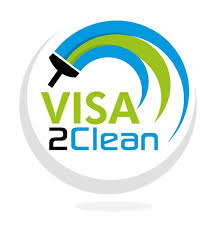Legal Challenges to Restraint of Trade Clauses in Franchising: What Franchisees Need to Know
Restraint of trade clauses are common in franchise agreements and are designed to protect the...
Franchising your business can be a daunting task, but it can also be extremely rewarding if done correctly. It offers a way for business owners to expand their reach and generate additional income.
If you want to franchise your business, you typically copy your business (or the part of your business that you want to franchise) along with its procedures and methods. This allows other people to run an exact copy of your business.
Whether franchising your business is a viable option for you depends on understanding several key factors, including the legal requirements of franchising and the overall demand for your product or service.
We have set out below the benefits that can come from franchising, possible risks that may arise when considering franchising a business, and strategies needed to begin the process.
Advantages to Franchising Your Business
Disadvantages to Franchising Your Business
Get Started
When you decide to franchise your business, you offer others the chance to open new franchise locations. These locations will mirror your established business model. This arrangement gives franchisees the right to use your trademarks, name and other intellectual property. They can also benefit from your specialised training, business systems, and continued support.
You will receive initial franchise fees and ongoing royalties. Franchisees will work to establish and manage new locations, which in turn, will generate greater sales for your brand.











Franchising has become a popular business model over the years, allowing entrepreneurs to establish a brand and expand their market presence with the help of others.
But franchising isn't for everyone, and requires a considerable investment of time, effort and capital.
With this in mind, we have set out some of the key topics that you should consider when thinking about whether to franchise your business.
Do you have a well developed brand?
In today's highly competitive market, branding is essential for any business to stand out and differentiate itself from its competitors.
To develop a strong brand identity you need to understand your target audience, your values and your unique selling proposition.
In franchising, branding is targeted at two separate and distinct markets.
The first market is brand customers. Clarifying your brand identity is crucial to ensure that your marketing efforts are consistent and effective. By establishing clear guidelines on your brand's messaging, tone and visual elements, you can communicate a cohesive message to your customers that resonates with them.
The second market is prospective franchisees. A strong customer focused brand will attract prospective franchisees. Additionally, franchisees who are advocates or evangelists for your brand will attract customers.
Remember that a brand is not just your business name and your logo. A brand is reflected in everything that your business does from marketing, to menus, to uniforms, to the look and feel of your premises.
Do you have business systems in place that can be easily followed and replicated?
It is important that all of your key business activities have well documented processes, procedures and standards.
A scalable operating system is essential. It can adapt and expand, ensuring consistency and efficiency across franchises. This leads to increased profitability.
Consider the level of difficulty for franchisees. Determine if specialised training or qualifications are necessary.
Training is more than just telling franchisees about your processes, procedures and standards. It's about explaining to franchisees the importance of brand consistency, and getting the franchisee's "buy-in". McDonalds is well known for its strong brand resonance among its franchisees. McDonalds franchisees identify and actively engage with the brand.
Does your business have quality standards?
By implementing quality standards, you can establish specific criteria for everything from customer service to product offerings. As a result, customers will be able to expect the same level of quality no matter which franchise location they visit. This not only helps build brand recognition but also encourages customers to return.
To ensure the same level of quality in products, you will need to either supply the franchisees with products or nominate approved third party suppliers who must be used by franchisees. Consequently, either you or your suppliers must be equipped to supply a larger network of outlets.
Ongoing quality and consistency is generally determined by franchisee selection, franchisee training, ongoing support and franchisee compliance.
Will the demand for your product or service continue to grow?
There is no guarantee that the initial demand for a product or a brand will be sustained. The market is constantly evolving. Change is happening more rapidly now than it ever has before, partly due to increasing technological advancements.
When considering the sustainability of the market for your product or service, you should again consider your target market and your Unique Selling Proposition.
To stand the test of time, your brand must stay attuned to your customer base. It should also adapt to changes in the market and to new competitors.
Will your franchise model generate income both for you and for your franchisees?
If you franchise your business, you must consider whether the business is going to work for both you and your franchisees taking into account, the demand for your product or service, ongoing franchise fees and the purchase of goods or services from third parties.
Prepare a forecast to determine if the business is viable for a franchisee. Consider franchise fees and charges in your analysis.
In addition, prepare a forecast to see whether the business can work for you as a franchisor.
Get your accountant or financial adviser to assist you with this process.
Further Resources
Why is brand consistency important in franchising?
.jpg?width=250&height=530&name=Copy%20of%20Advantages%20of%20franchising%20(1).jpg)
Business growth typically requires capital investment. This capital investment can be substantial, especially if business growth involves opening stores in different locations. Franchising allows you to expand without increasing debt or the cost of equity.
If you franchise your business, your franchisees will invest the capital needed to grow the brand. This capital may include substantial fit out costs, an initial franchise fee (paid to you) and the working capital required to establish the business.
In addition, typically the franchisee will sign the lease with the landlord, reducing one of the risks involved with operating multiple sites.
As the franchise network grows, you will have more bargaining power with suppliers. Further, expansion may allow you to customise products. For example, most coffee franchises have their own particular blend of coffee. This blend may form part of the competitive advantage or USP of the brand.
Also, as the franchise network grows, you will have access to more funds to market and advertise the brand, through the advertising fund.
Franchising enables you to grow your brand more quickly because you are not constrained by either financial or personal resources.
If your business goal is to open 10 locations in the next 12 months, each costing $300,000.00, you would need to find $3,000,000.00 plus working capital to grow the business organically. In addition, you would need to find locations and employees to operate and manage those locations.
If you franchise your business, the franchisee will find the location, finance the fit out and employ the staff to operate and manage the locations.
Unlike in an employment relationship, a franchisee has a financial stake in the business. It is in the franchisee's interests to maximise the profitability of the individual franchise business.
Franchisees will generally outperform managers, both in generating turnover and in keeping an eye on expenses. For example, labour costs are generally better managed by a franchisee, as they are usually more careful with wages and scheduling.
A franchisee will often work in the franchise business and is responsible for employing and training staff.
If you are not responsible for the day to day operations of the franchise business, this will allow you to focus more on the big picture, including innovation and brand management.
Franchisees will also often undertake their own local marketing, both digital and traditional. Some franchisees are permitted by the franchisor to manage local facebook pages - building rapport and brand loyalty with their local customers.
The flip side to the franchisee being responsible for the day to day operation of the franchise business is that you do not have control of the day to day operation of the franchise business.
It is essential that your systems and processes are clearly documented and that your franchise documents adequately support franchisee compliance.
In addition, it is essential that franchisees and their employees are well trained.
The development and implementation of a good training program which will produce compliant franchisees requires time and resources.
A common complaint made by franchisees is that their initial training was very basic and that they commenced operating the franchise business without really knowing what to do.
Franchisees also require continual support. Again this requires additional resources. You may need to employ specialised staff to undertake this role.
Perhaps one of the greatest challenges for a franchisor is managing poorly performing franchisees.
Often a franchisee is "locked in" to their franchise, due to financial investment and may be forced to continue to operate the franchise business when they are no longer motivated to do so.
If a franchisee is not performing and is unhappy, they can be difficult to move on and they can damage your brand.
Again, it is vitally important to have adequate systems and procedures in place to ensure compliance and to give you the ability to terminate the franchisee if it is in the best interests of the franchise network to do so.
You need to ensure that you comply with the Competition and Consumer Act 2010 (Cth) and the Franchising Code of Conduct ("the Franchising Code") [What is the Franchising Code of Conduct?].
In addition, you need to ensure that franchisees are complying with relevant laws such as the Privacy Act 1988 (Cth) and the Fair Work Act 2009 (Cth) (the Fair Work Act).
In 2017 "franchisor liability" laws were introduced which include franchisor accessorial liability for serious contraventions of the Fair Work Act by franchisees.
The flip side to "fast growth" is ensuring that your new business as a "franchisor" has the resources required to adequately manage the franchise network.
The business of franchising and being a franchisor is different from operating the business that you have franchised. You will need to ensure that you have the staff and the systems that can support an expanding franchise network.
Once you have evaluated your business model and made the decision to franchise your business, there are a number of steps that you need to take before you can grant your first franchise and open your first franchised location. While the franchise journey will be different for each person, we have set out the general steps below.
Do you have a registered trademark?
You may have already registered your trademark as part of establishing and growing your business.
If you do not have a registered trademark it is important to take this first step. You may want to grant a franchise in a specific location, but not be able to because someone is already operating a business under your name in that location.
At this stage you will develop the franchise fee structure, including initial upfront fees, ongoing royalties, ongoing advertising fees and other financial arrangements. It is important that you get advice and assistance from franchise professionals (such as franchise consultants, accountants and franchise lawyers) to develop the model and fee structure. If fees are too high, then franchisees may not be able to achieve an acceptable return on investment. If fees are too low, you may not generate enough income to grow the franchise and invest in advertising and marketing.
Establish guidelines for territory allocation, training, marketing support and operational standards.
Often this step will form part of the next step [Develop Your Franchise Documents] and may be undertaken at the same time.
In order to grant a franchise, you will need to develop a number of franchise documents including:
It is important that you seek advice from an experienced franchise lawyer to develop these documents. Franchising is complex and a number of laws and regulations govern the franchise industry.
A well drafted franchise agreement will reflect your business model and will clearly set out the rights and obligations of both you and the franchisee.
A franchise agreement must comply with the Franchising Code, but must also comply with the unfair contracts regime under the Australian Consumer Law.
In addition to the franchise agreement, you must also develop a disclosure document that complies with the Franchising Code. The disclosure document should contain information that a prospective franchisee needs in order to make a decision on whether to buy a franchise.
The Key Facts Sheet sets out some of the information contained in the disclosure document in a summarised form.
In our experience, people sometimes franchise their business because they have a well known brand and people have approached them to "buy a franchise".
Prior to granting a franchise, it is important that you identify the qualities, skills and experience that you are seeking in potential franchisees. Generally, a franchisee application form will be prepared as part of your franchise document package. This form will provide you with information about a prospective franchisee, including qualifications, experience and financial standing.
A franchisee that lacks skills, capital or commitment, can cause a franchise site to fail and damage a franchise system's reputation.
Remember that you don't need to accept every application.
Developing comprehensive training programs that cover all aspects of the business, from operations to marketing will help franchisees feel confident and equipped to run their own outlet. Most training materials and operations manuals are now delivered online, which means that you can continue to develop your training materials and operations manuals as the franchise system matures.
Ongoing support should also be provided to franchisees, whether through regular check-ins or meetings to address any questions or concerns that franchisees may have.
It is important that you understand your legal obligations before establishing a franchise location. In addition to providing a prospective franchisee with franchise documents that comply with the requirements of the Franchising Code, there are ongoing obligations set out in the Franchising Code. These include obligations related to the marketing fund (if the franchise system has a separate fund) [Franchise Marketing Funds Obligations], obligations for ongoing disclosure, obligations related to significant capital expenditure [Significant Capital Expenditure Obligations], and the obligation to act in Good Faith [Good Faith in Franchising]. If you do not comply with your obligations under the Franchising Code, you may be subject to substantial penalties [Infringement Notice Penalties for Franchising Code Breaches].
Further, as a franchisor, you may also be liable for penalties arising from a failure by franchisees to comply with workplace laws [Franchisor Liability and the Fair Work Act]. Many franchisors conduct ongoing checks of franchisees, to ensure that franchisees are complying with their obligations under the Fair Work Act.
Marketing support is another crucial element of a franchise network. Franchisees should have access to professionally designed marketing materials, such as brochures, menus and digital templates, to promote their business effectively.
It is important that you develop marketing guidelines to maintain brand consistency.
One of the decisions you will need to make is how much marketing you as the franchisor will undertake for the brand, and how much marketing the franchisees will undertake for the brand. For example, will franchisees manage their own local social media pages, or will social media be undertaken on a global basis.
Local marketing initiatives are important for a franchisee to build rapport with their local community. Consider what local marketing initiatives can be undertaken by the franchisee.
Establish clear communication channels and processes to ensure that information flows smoothly between you and your franchisees.
Effective communication processes help maintain consistency and adherence to the franchise system and standards.
Take into account that as the franchise system matures and grows, you will be unable to provide all franchisees with individual attention.
Relationships with suppliers are integral to most franchise systems.
In retail food franchises it is imperative that suppliers have the capacity to supply both the increased number of sites, and additional locations. Remember that franchisees will quickly become frustrated if they are not able to maintain inventory. Additionally, you want to ensure brand consistency.
If it is proposed that sites be opened in new locations, you may need to establish new relationships with local suppliers.
Shop fitters and equipment suppliers are additionally important for site based franchises. One of the foundations of franchising is that each location feels the same.
Other supply relationships must also be explored, such as software partners and uniform providers.
Consider the pace and scalability of growth, ensuring that infrastructure, resources, and support systems are in place to accommodate planned growth.
If you have a good or service which is unique or new to the market (and given that infrastructure and resources are in place), you may aim for fast growth in order to capitalise on being first to the market.
If fast growth is not the best strategy for your business, you may choose more steady growth, possibly opening a number of corporate sites to generate cash flow.
We have the experience to help you get it right.
Resources
What is a franchise agreement?
What is a disclosure document?
What is the Franchising Code of Conduct?
What is Intellectual Property?
Disclaimer
The information in this page is general in nature and is not intended to address the circumstances of any person or other entity. Although we do our best to provide timely and accurate information, we do not guarantee that the information in this article is accurate or that it will continue to be accurate in the future.
Restraint of trade clauses are common in franchise agreements and are designed to protect the...
Copyright © 2021 Haarsma Lawyers